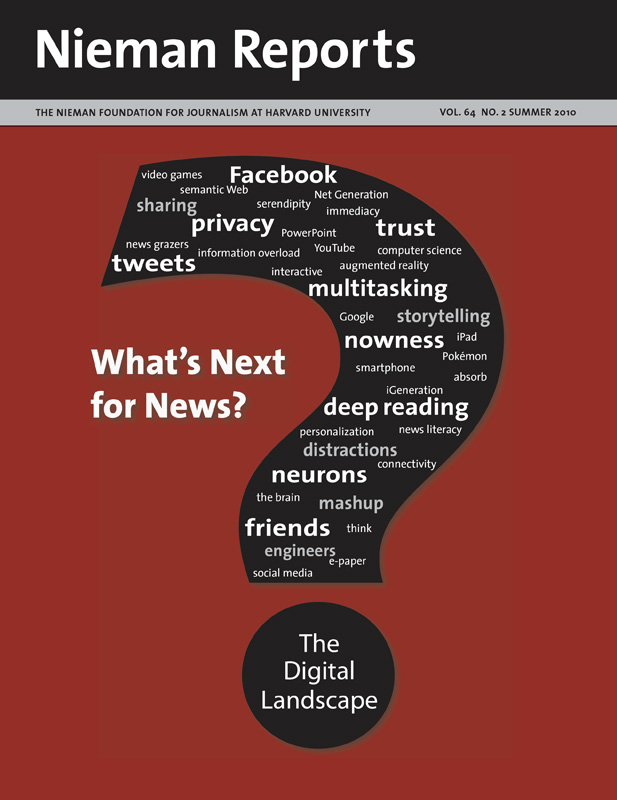It’s the wine, not the bottle. Readers, audiences and communities don’t drink light wines anymore. They want rich, full-bodied wines.
So executives who run a monomedia information winery don’t have to worry about the tablet, Internet or mobile media. Print media will survive but with a shrinking market, fewer and older readers, and not very much advertising, increasing production and distribution costs, and falling margins and profits. It might be difficult to attract new and young talent.
But those who believe in the future of the news business, understand the public’s new habits, and want to be a reliable and profitable player in this new media landscape should pay attention to the new mobile media devices like tablets and smartphones. They are here to stay.
Tablets are not the salvation of print media, but newspapers and magazines are still the best journalistic vehicles for finding exclusive news. What is critical are the skills to edit relevant stories and design compelling news packages, not just for static monomedia platforms but for the new, dynamic, mobile and multimedia platforms.
Don’t expect miracles. If a monomedia operation produces secondhand news and stories, the tablets will not change anything. Remember: garbage in, garbage out. But if a newsroom embraces these new digital multimedia narratives, the life of a publisher, editor or reporter is going to change forever.
A newsroom will not be prepared to handle new platforms if it has:
- Continued to think print first
- Web site staff who still think online first
- Failed to integrate its print and Web newsrooms
- Salespeople who still don’t sell multimedia packages
- Journalists and managers who don’t talk to each other
- Information technology people who want to control everything
- Visual journalists who are still monomedia storytellers
- Journalists who are not able to create unique, relevant and compelling content
- Failed to become a 24/7 multimedia operation
- Failed to spend money on research, training and innovation.
As media consultant Daniel Ambrose wrote on his Online Publishing Insider blog:
It should be clear … that if reaching the maximum number of readers and customers—and customers for advertisers—remains a key strategy for media companies, they’ll be doing that on a wider and wider range of devices and platforms. Analog media companies have struggled to adapt to one important new distribution platform in the last 15 years: the browser-based Internet. Over the next 15 years there will be dozens of new opportunities to deliver media company content and services. It’s time to begin the education process in earnest; not with highly specific training on particular platforms anointed by management, but with conceptual thinking that provides a framework for taking in each new delivery form. It’s time for publishing companies to begin to reinvest in their staffs at all levels. Companies that do so will thrive. New opportunities are emerging every day that their staffs will recognize and exploit. Companies that don’t will see the future pass them by.
In my opinion, tablets, like the Internet in the past, are fantastic opportunities, not just devices on which to perform the same old tricks. This is a radical departure from how newspapers and other media businesses develop new relations with readers and advertisers as well as how customers interact with them, anywhere, anytime, all the time.
That’s good news for the media if they are able to produce richer wines. Content rules.
Juan Antonio Giner is president and founder of Innovation International Media Consulting Group in London. He writes the What’s Next: Innovations in Newspapers blog and is an editor of the World Association of Newspapers’ annual report Innovations in Newspapers. He can be reached at giner@innovation-mediaconsulting.com.


